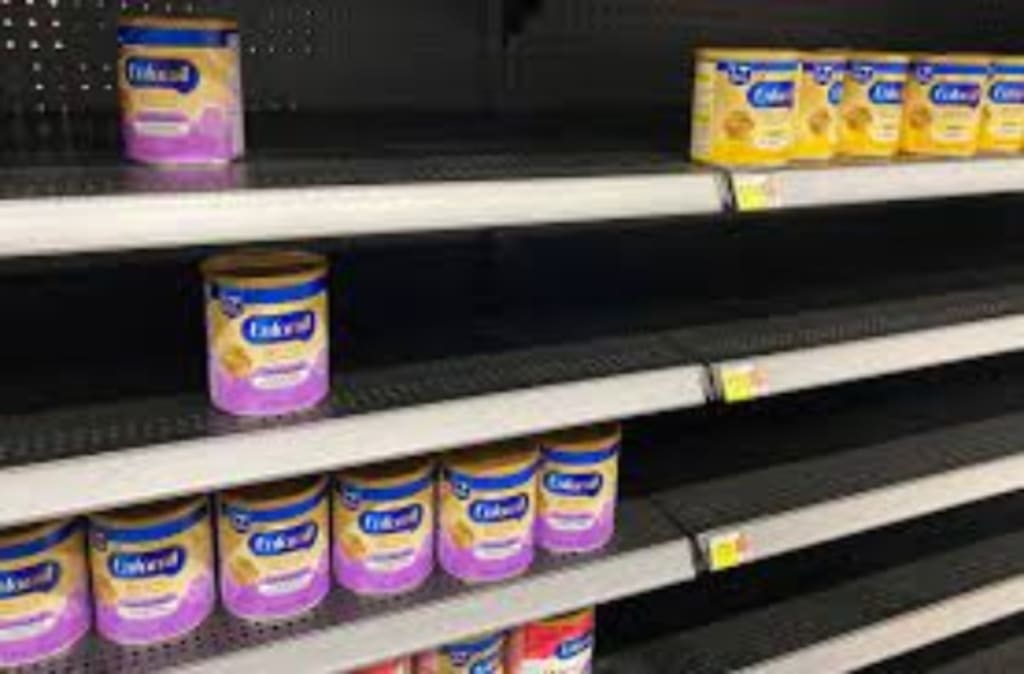Could a baby formula shortage happen again, as warned by scientists?
"The looming threat: Experts raise concerns over a potential resurgence of baby formula shortage"

In recent months, scientists have been warning of a potential shortage of baby formula. This is a concern that many parents have, especially those who rely on formula to feed their babies. The pandemic has already caused a shortage of some essential items, and many are wondering if formula could be next.
Baby formula is a crucial product for many parents, especially those who cannot or choose not to breastfeed. Formula provides babies with the nutrients they need to grow and thrive. Without access to formula, babies could suffer from malnutrition, and their health could be put at risk.
The reason for the potential shortage is due to a combination of factors. One of the most significant is the pandemic. As COVID-19 continues to spread, it has caused disruptions in global supply chains. This has affected the production and distribution of many products, including baby formula.
Another factor that has contributed to the potential shortage is climate change. Extreme weather events, such as droughts and floods, can have a significant impact on the production of key ingredients used in formula. For example, soybean crops in the United States have been affected by drought, which could lead to a shortage of soy-based formula.
Additionally, the global demand for baby formula has been increasing, particularly in developing countries. As the middle class grows in these countries, more parents are turning to formula to feed their babies. This increased demand has put pressure on the supply chain, and there are concerns that it may not be able to keep up.
The potential shortage of baby formula has already been felt in some parts of the world. In the United Kingdom, there have been reports of formula shortages, with some parents struggling to find the specific brands and types of formula that their babies need. This has led to panic buying and stockpiling, which can exacerbate the shortage and make it more difficult for other parents to find the formula they need.
To prevent a potential shortage of baby formula, scientists and experts are calling for action. One of the most critical steps is to increase the resilience of the supply chain. This includes diversifying the sources of key ingredients and improving the distribution network to ensure that formula can be delivered to those who need it, even in times of crisis.
Another step is to raise awareness of the potential shortage and encourage parents to only buy the formula they need. Panic buying and stockpiling can create unnecessary demand and exacerbate the shortage. Parents should also consider alternative sources of nutrition, such as breast milk, where possible.
Finally, policymakers can take action to address the root causes of the potential shortage. This includes investing in research and development to find more sustainable and resilient methods of producing baby formula, as well as addressing climate change and its impact on agriculture.
In conclusion, a potential shortage of baby formula is a concern that many parents have, particularly in light of the pandemic and climate change. While the situation is not yet dire, it is essential to take action now to prevent a shortage from occurring. By increasing the resilience of the supply chain, raising awareness of the potential shortage, and addressing the root causes of the problem, we can ensure that all babies have access to the nutrition they need to grow and thrive.





Comments
There are no comments for this story
Be the first to respond and start the conversation.